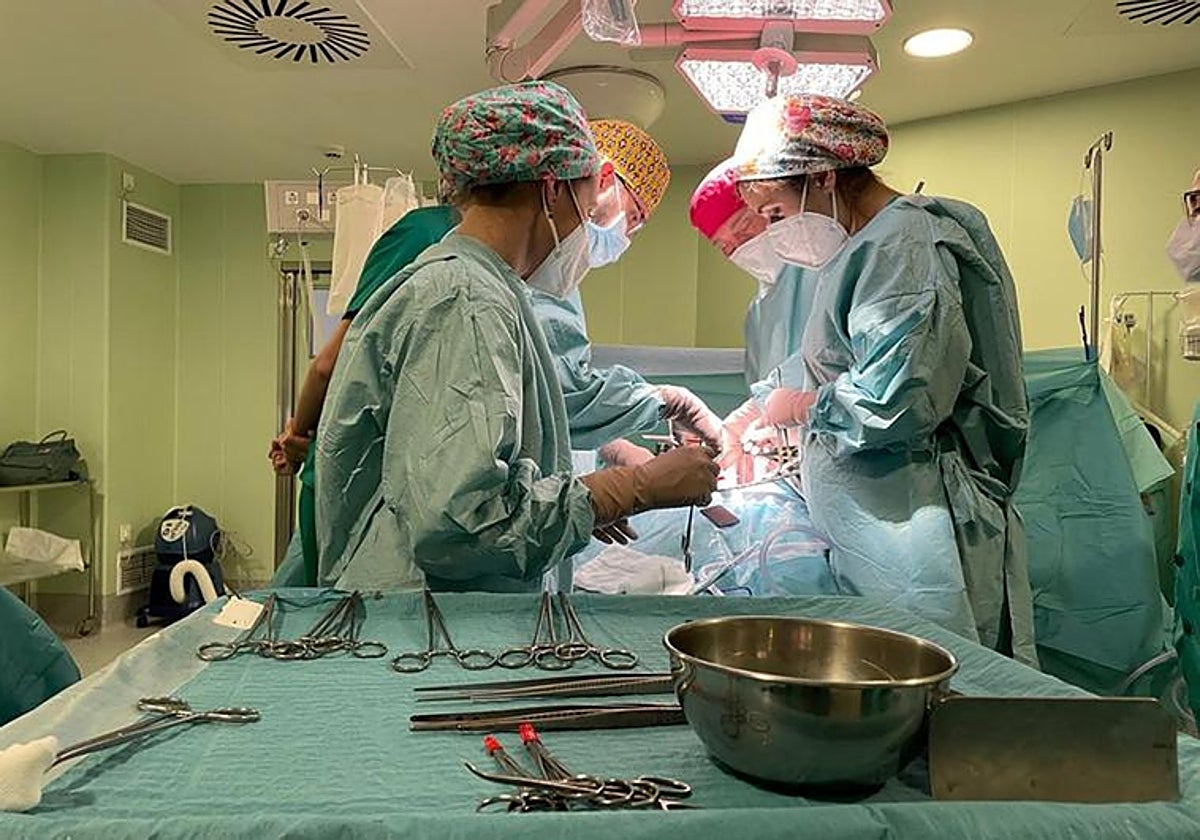Malaga hospital marks medical milestone by performing an average of four kidney transplants a week
The Regional hospital has already performed 140 operations this year, is the Andalusian leader in this field and a national benchmark
Iván Gelibter
Malaga
Tuesday, 29 August 2023, 17:38
The Regional Hospital in Malaga is the Andalusian - and possibly national - leader in kidney transplants.
The hospital has performed at least 140 operations of this type already this year, which is an average of four a week. "At this point in the year we have already carried out more transplants than in the whole of 2022, and between January and May we have achieved the record figure of 100 operations in five months," Dr Verónica López, head of the Nephrology service, said.
Dr López attributed the number of operations to a higher number of donors. "We have implemented measures to improve live transplants, and this has led to exponential growth. We have carried out 12 so far this year, compared to eight for the whole of 2022. We have even performed three live transplants on people who were not compatible in theory because they were of different blood groups," she added. There will be three more transplants of this type this year, while in the previous seven years just two had been performed.
The increase in transplants is also due to a rise in the number of patients on waiting lists. "There are fewer absolute contraindications; in fact, age, for example, is no longer one of them," Dr López said. But this is not the case in other hospitals or other provinces in Spain. "A lot of work is being done with chronic kidney disease consultations. Patients are put on waiting lists much earlier, which means that they arrive in better health conditions for possible transplants," she added.
In terms of figures, Dr López confirmed that the Regional Hospital has performed the most kidney transplants in Andalucía, and possibly in all of Spain. "I can't say for sure, but I have the feeling that from January to May we performed the most," she said.
Raising awareness
According to the Regional Hospital, the time from when a person is added on the waiting list until the operation is performed is on average less than three months. Despite the good figures, the head of the nephrology department said there is still room for improvement, especially in the area of live transplants. "We have increased the number, but it is still a low percentage, around 5%. We need to raise this figure to at least 10%," she pointed out.
She said this is achieved by raising awareness among patients. "We have to bear in mind that a living donor is a more optimal type of transplant because it lasts for more years. The donor is in better health and the organ does not suffer because it hardly spends any time outside the body," Dr López added.
Live transplants can be done between family members, friends or partners. The most common are from mothers to sons or daughters. The reason is that women donate more kidneys than men; "this has been proven", Dr López said. Compared to the rest of Spain, Malaga donors are in the average, while among living donors the province is below average, she pointed out.
